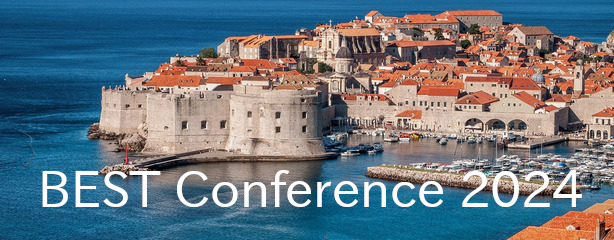Welcome to the BEST Conference!
August 09-12, 2023
Jeju, South Korea
International Conference on Big data in Economics, Science and Technology (BEST), an international interdisciplinary conference combining aspects of economics, science, and technology to address complex societal issues that we face today on a global scale.
This is the latest conference in the series of past and successful conferences.
- 1st BEST Conference, July 5-7, 2013, Kyoto, Japan
- 2nd BEST Conference, August 22-24, 2014, Wailea, Hawaii, USA
- 3rd BEST Conference, July 20-22, 2015, Ohrid, Republic of North Macedonia
- 4th BEST Conference, July 20-22, 2016, Bali, Indonesia
- 5th BEST Conference, July 19-21, 2017, Phuket, Thailand
- 6th BEST Conference, July 12-14, 2018, Khalkidhiki, Greece
- 7th BEST Conference, July 5-7, 2019, Buenos Aires, Argentine (a StatPhys27 Satellite)
- 8th BEST Conference, July 12-14, 2021, Belgrade, Serbia (Hybrid Conference)
- 9th BEST Conference, August 18-20, 2022, Maui, Hawaii
- 10th BEST Conference, August 09-12, 2023, Jeju, South Korea
Scope
The stability and sustainability of economic and legal systems are important for long-term global prosperity. In addition to stable financial systems, economic sustainability also depends on reliable healthcare systems, secure computer networks, dependable transportation, and solid infrastructure, to name a few. In this environment of rapid technological development, science and technology play an essential role in modeling and forecasting future economic and societal outcomes.
Statistical physics and network theory offer new analytical approaches to studying economic development and the interconnectivity of the global economy’s underlying systems.
Interdisciplinary research’s importance is growing. Multidisciplinary studies have been conducted in many aspects of global financial systems, cybersecurity, healthcare, transportation, and infrastructure. Studies show that societies function as interconnected, interdependent networks. There are significant relationships between traditional and innovative economic trends. Researchers have developed tools to measure risk propagation through financial networks. Yet, some concentrate on data mining, spreading the wing of researchers who explore, analyze, and investigate a wide range of global economic data available today, including traditional macroeconomic indicators and novel securities such as cryptocurrencies.
The BEST interdisciplinary conference intends to cover various research aspects affecting communities and global development, attracting researchers from multiple scientific fields. Some of the topics covered at the conference are:
・Network Analysis and Complexity Science
・Modeling and Simulations of Financial Networks
・Health Informatics and Health Economics
・Risk Evaluation and Mitigation
・Cybersecurity and Cryptocurrencies
・Business Cycles and Economic Trends
・FinTech
・Environmental, Social, and Governance (ESG) Investing
・Climate Change and Sustainability
・Public Health Crises’ Effects on Societies
・Cybercrime Investigation
Date and Place
- Date: August 09-12, 2023
- Place: Parnas Hotel Jeju
Address: 100, Jungmungwangwang-ro, 72 beon-gil, Seogwipo-si, Jeju-do, South Korea - URL: https://www.parnashoteljeju.com/en/main.do
Accommodation Information
- Place: Parnas Hotel Jeju
Address: 100, Jungmungwangwang-ro, 72 beon-gil, Seogwipo-si, Jeju-do, South Korea - URL: https://www.parnashoteljeju.com/en/main.do
Registration
Student rate 110 USD (141,000 KRW)
Academic rate (non-presenter) 220 USD (281,000 KRW)
Academic rate 450 USD (575,000 KRW)
Corporate rate (non-presenter) 650 USD (831,000 KRW)
Corporate rate 900 USD (1,151,000 KRW)
Payment for the conference registration fee will only be available in cash on-site.
We apologize for any inconvenience this may cause.
Please note that a certificate receipt will be issued.
Abstract submission
Completed and closed.
Abstract submission deadline: July 10, 2023.
Decisions by July 20, 2023.
Program
Conference photos
Organizing Committee
Duk Hee Lee (Chair, KAIST, Korea)

Hideaki Aoyama (Co-chair, RIKEN iTHEMS, Kyoto University, Japan)

Irena Vodenska (Co-Chair, Boston University, USA)

Yoshi Fujiwara (Co-chair, University of Hyogo, Japan)

Program Committee
Lou Chitkushev (Boston University, USA)
SeungHun Han (KAIST, Korea)
Chulho Lee (KAIST, Korea)
Hyejin Kim (KAIST, Korea)
Guanglan Zhang (Boston University, USA)
Jae Woo Lee (Inha University, Korea)
Ilwon Seo (Chonnam National University, Korea)
Technical support
Inje Kang (Ph.D. Student, KAIST, Korea)












